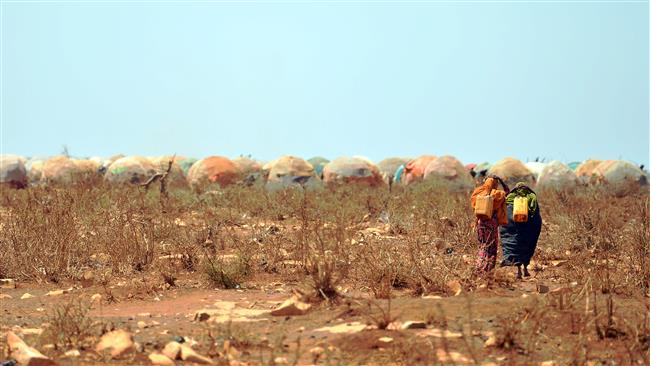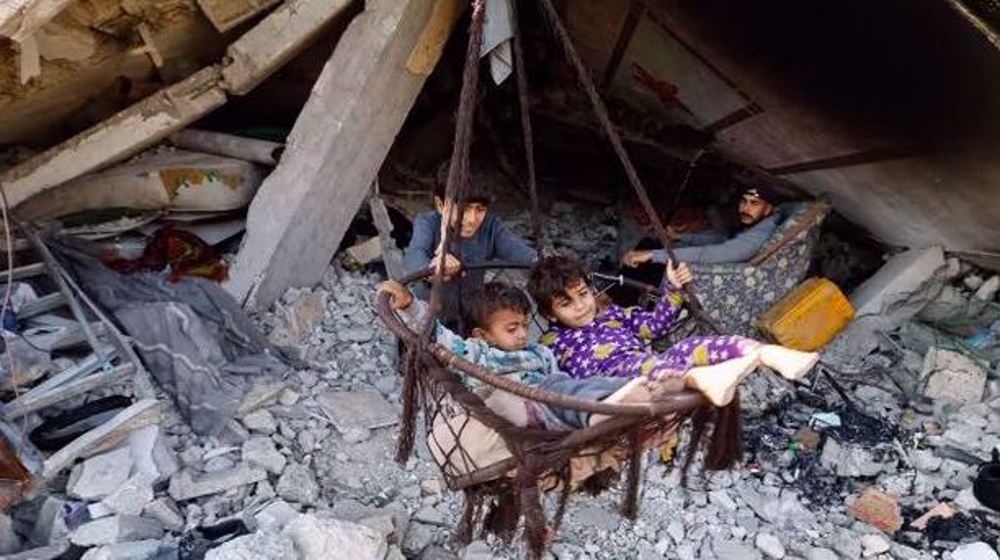Severe water shortages may hit one in four children by 2040: UNICEF
The UN children's agency UNICEF predicts that 25 percent of children, 600 million in total, may live in areas with severely limited water resources by 2040, exposing them to fatal diseases such as cholera and diarrhea.
Already some 500 million children live in areas with limited water supplies, and the demand for water today far exceeds available resources in 36 countries, UNICEF said Wednesday.
Supplies are expected to shrink further due to droughts, rising temperatures, flooding, population growth and urbanization, the UN agency said in a report.
If no action is taken to clean up and conserve water supplies, more children will be forced to drink potentially unsafe water as a result, UNICEF said.
"Around the world, millions of children lack access to safe water - endangering their lives, undermining their health, and jeopardizing their futures," said UNICEF executive director Anthony Lake.
"This crisis will only grow unless we take collective action now,” he added in a statement.
Climate change is one of the reasons behind reduced water sources in the future, impacting "the quality and quantity of the water", Cecilia Scharp, a senior water advisor at UNICEF, told the Thomson Reuters Foundation.
Flooding, which is expected to increase due to rising sea levels and changing weather patterns, can pollute water supplies and spread unsafe water across wide areas.

Droughts are also expected to increase in frequency and severity.
Women and girls now spend 200 million hours a day collecting water, and this will rise if they are forced to travel further to reach water sources, making them vulnerable to attack in some countries, UNICEF said.
UNICEF’s projections are based on models assuming no action is taken to conserve water and tackle pollution, Scharp said.
But governments, industries, agricultural businesses and communities can help diminish the impact of climate change on children in countries pressed for water resources, the agency said.
Governments should plan for risks to water supplies from drought, rising temperatures, flooding, population growth and urbanization, Scharp said.
Businesses should ensure they are conserving as much water as possible, and reusing waste water whenever they can, UNICEF said.
"You can use economic incentives so people don't overuse (water),” Scharp said of local governments.
“You can put restrictions on ... personal use of water in urban areas where a lot of water is used for lifestyle activities, more than (for) consumption."
Poorer children will be hurt the most by a depletion of water sources in the future. This "should come as no surprise", UNICEF said.
(Source: Reuters)
Iran returns to IOC leadership after 21 years as Olympian Soraya Aghaei wins seat
Discover Iran: Ziarat village in Golestan, where sacred herritage meets natural wonders
Ansarullah slams UAE-Saudi war between 'once-allied occupiers’ in Yemen
VIDEO | Israel’s economic defeat
US military bill tasks Washington to counter Israel arms embargo
Iran: US seizure of Venezuelan oil tanker illegal, ‘piracy in Caribbean Sea’
'Blatant theft': US seizes Venezuelan oil tanker in dramatic escalation
VIDEO | Venezuelans march to support Maduro government in the face of US threats










 This makes it easy to access the Press TV website
This makes it easy to access the Press TV website